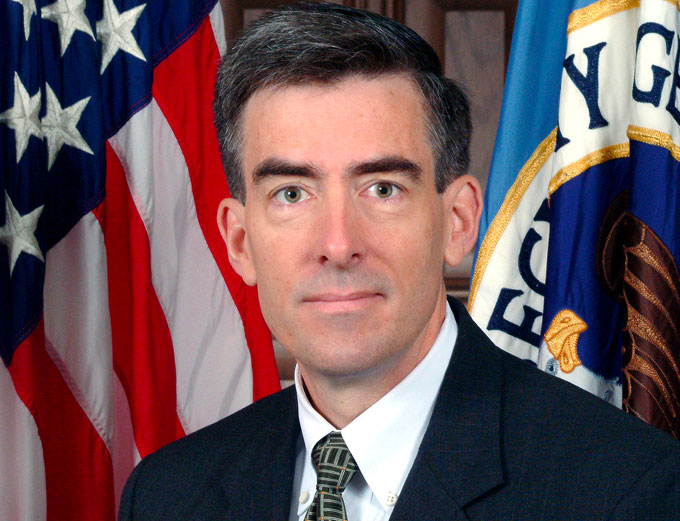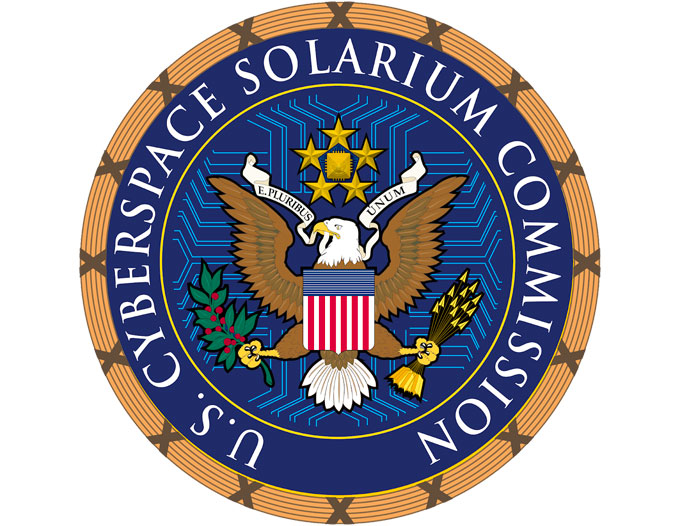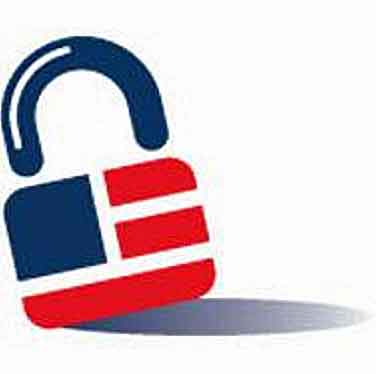
State utility commissions have the ability to strengthen the cybersecurity of U.S. critical infrastructure, particularly the electric grid, by advancing a number of relevant recommendations released in a report last month, from the Cyberspace Solarium Commission (CSC).
A webinar was held Friday, to inform utility commissioners and outline the report’s recommendations.

The utility commissioners were briefed on the report’s key pillars, by two members of the Solarium Commission, Tom Fanning, Chairman President and CEO of Southern Company, and former National Security Agency Deputy Director Chris Inglis.
The webinar was cosponsored by the National Association of Regulatory Utility Commissioners (NARUC), and Protect Our Power (POP), a not-for-profit organization designed to build a consensus among key stakeholders, decision-makers and public policy influencers to launch a coordinated and adequately funded effort to make the nation’s electric grid more resilient and more resistant to all external threats.

“Every aspect of society – from critical infrastructure, banking, education, and healthcare – relies on safe, reliable utility services and communications networks,” said NARUC President Brandon Presley, of the Mississippi Public Service Commission.
“The layered cyber deterrence approach outlined in the Cyberspace Solarium Commission’s report may serve as a practical roadmap to protect our critical infrastructure.”
“I am pleased that our association is able to work collaboratively with Protect our Power to share this important information with our regulators and the broader utility community.”
The Cyberspace Solarium Commission was established by Congress to “develop a consensus on a strategic approach to defending the United States in cyberspace against cyber attacks of significant consequences.”
The finished report, consisting of more than 80 recommendations organized into six key pillars, was presented to the public on March 11.

“The battles of the future will be fought on our nation’s energy infrastructure, telecommunication networks and financial systems,” said Fanning.
“The Cyberspace Solarium Commission was created to reimagine military doctrine for this new digital reality.”
“Fully 87 percent of the critical infrastructure in the U.S. is owned by private industry, making the collaboration between the private sector and government in protecting our American way of life that much more vital.”
Fanning also cochairs the Electric Sector Coordinating Council, which serves as the principal liaison between the federal government and the electric power industry, with the mission of coordinating efforts to prepare for, and respond to, national-level disasters or threats to critical infrastructure.

The webinar was moderated by POP Senior Advisor Richard Mroz, former president of the New Jersey Board of Public Utilities and former chairman of NARUC’s Critical Infrastructure Committee.
“It is vital that we protect our electric grid that supports all of our critical infrastructure in the United States.”
“Protect Our Power is pleased we could join NARUC in convening this important event to highlight the work of the Solarium Commission and its importance to state officials,” said Mroz.
“Our country is at risk, not only from a catastrophic cyberattack but from millions of daily intrusions, disrupting everything from financial transactions to the inner workings of our electoral system.” You can read the CSC’s full report here: https://t.co/zFmcBjJtG9
— Cyberspace Solarium Commission (@CyberSolarium) March 11, 2020
The Solarium Commission report’s six key pillars are as follows:
-
Reform the U.S. Government’s Structure and Organization for Cyberspace
-
Strengthen Norms and Non-Military Tools
-
Promote National Resilience
-
Reshape the Cyber Ecosystem
-
Operationalize Cybersecurity Collaboration with the Private Sector
-
Preserve and Employ the Military Instrument of National Power
 Two recommendations specified on pages four and five of the report, highlight the critical need for a more resilient electric grid by calling for actions to protect “critical functions” that are dependent upon a reliable power supply:
Two recommendations specified on pages four and five of the report, highlight the critical need for a more resilient electric grid by calling for actions to protect “critical functions” that are dependent upon a reliable power supply:
-
Congress should direct the U.S. government to develop and maintain Continuity of the Economy planning in consultation with the private sector to ensure continuous operation of critical functions of the economy in the event of a significant cyber disruption.
-
Congress should codify the concept of “systemically important critical infrastructure,” whereby entities responsible for systems and assets that underpin national critical functions are ensured of the full support of the U.S. government and shoulder additional security requirements befitting their unique status and importance.
The report is available in its entirety here.
AST strives to meet a 3 STAR trustworthiness rating, based on the following criteria:
- Provides named sources
- Reported by more than one notable outlet
- Includes supporting video, direct statements, or photos
Subscribe to the AST Daily News Alert Here.
Learn More…
(2020 Cyberspace Solarium Commission Report Launch, courtesy of Senator Angus S. King, Jr. and YouTube.)

















